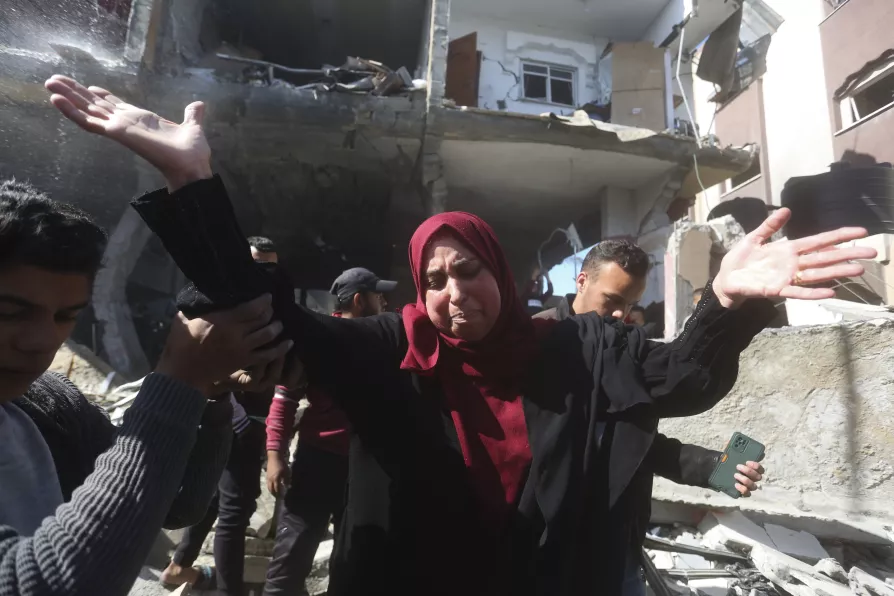As tens of thousands return to the streets for the first national Palestine march of 2026, this movement refuses to be sidelined or silenced, says PETER LEARY


ON International Women’s Day, the women of Gaza are between the hammer of violence and the anvil of stolen rights.
On March 8 every year, the world unites in celebration of International Women’s Day which the United Nations officially declared a day in 1975.
This special day exemplifies how women can draw inspiration and strength from unexpected sources. It is the symbol of the ongoing fight for women’s rights such as education, employment and healthcare. International Women’s Day is not just a recognition occasion; it is about honouring the many roles that women play in society daily.
However, amid the global festivities, there is perhaps a small corner of the world that becomes a blind spot, where the fate of women remains grim and their rights continue to be flagrantly violated in the harshest ways conceivable. This land is Palestine where Palestinian women endure the cruelty of living under the Israeli occupation and daily encounter the horrific hardships of unbearable oppression.














